Irish Foreign Minister Simon Coveney criticises Irish border visa waiver plans
- Published
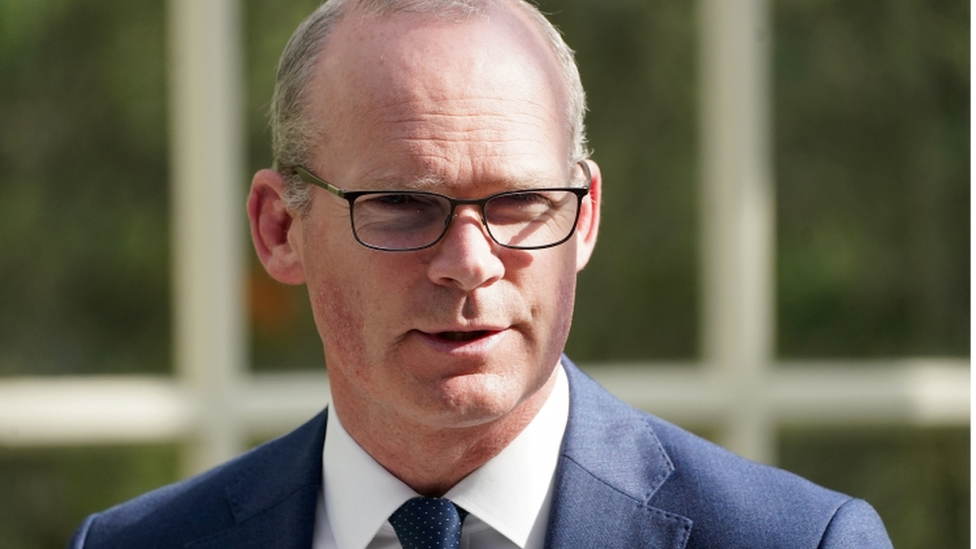
Simon Coveney said conversations with the UK government will continue and told journalists that "this process is not over"
Irish Foreign Minister Simon Coveney has criticised plans for a US-style visa waiver for non-Irish EU citizens crossing the Irish border.
He said the move, which is part of new British Immigration laws, was concerning.
The bill, which is being considered at Westminster, examines the issue of nationality and immigration control.
Northern Ireland Secretary Brandon Lewis has defended the plans.
Speaking in Dublin, Mr Coveney said the Irish government's position has been made to the UK, but to date "had been ignored".
He said that for many years "the creation of normality" on the island of Ireland had been "based on uninterrupted travel opportunities and movement of people and we think that is worth protecting".
The planned change would require all non-Irish EU citizens - and those from Norway, Liechtenstein and Iceland - living in the Republic of Ireland, to apply for an electronic travel authorisation (ETA) to cross the border.
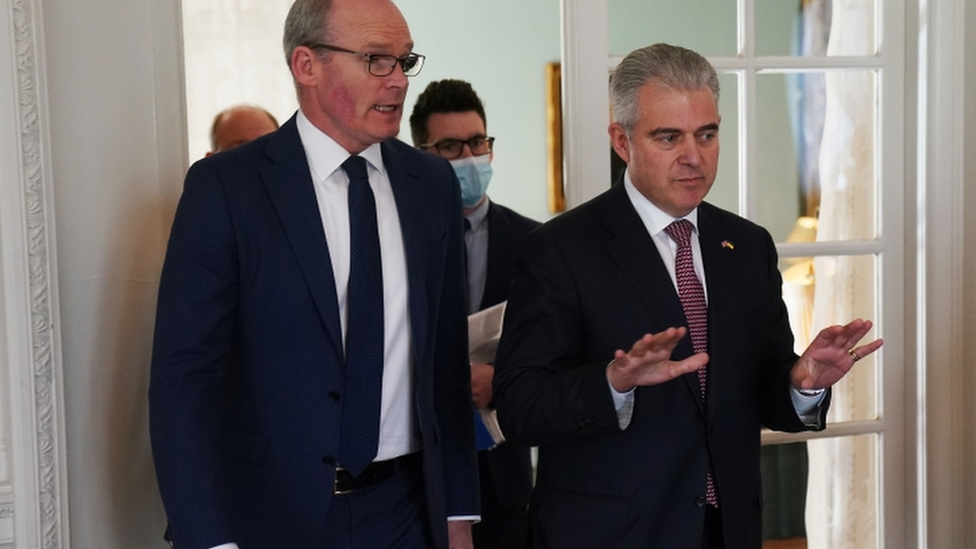
Simon Coveney and Brandon Lewis met at the British-Irish Intergovernmental Conference (BIIGC) in Dublin
It is similar to what international passengers have to fill in before arriving in the United States or Canada.
The British government says it is simply an online form and once completed can be easily renewed.
Mr Coveney said that in his discussions with British politicians it is the case that "not for the first time we will be asking for special treatment".
He was speaking after a meeting of British and Irish ministers at the British-Irish Intergovernmental Conference (BIIGC) in Dublin.
He said conversations with the UK government would continue and he told journalists that "this process is not over".
However, Mr Lewis stood by the UK government's intentions.
He said "nobody is going to be stopped at the border, we have been very clear about that, there are not going to be any border checks".
Mr Lewis added that similar systems were run "around the world " and he said the UK plan was a "system that works".
He said "this is a change that works in updating the entire UK border policy".
'Dial down his rhetoric'
Lord Dodds, of the Democratic Unionist Party (DUP), said Mr Coveney should "dial down his rhetoric".
"The border of the United Kingdom is between Northern Ireland and the Republic of Ireland. It would be to compound the travesty of the Northern Ireland Protocol if the visa border was to be also in the Irish Sea," he said.
"There will no checks on anyone on the actual border so the current position remains.
"As far as regular trips over the border are concerned, we understand there will be arrangements made to facilitate easy access without having to apply on each occasion."
However, Sinn Féin President Mary Lou McDonald said the taoiseach (Irish PM) must contact Prime Minister Boris Johnson over the plans.
She said the British government was "pushing forward with a requirement for EU citizens who are not Irish or British citizens to apply for travel clearance if they wish to travel from the south to the north of our island".
"This is a shameful situation," she said.
"It undermines the Good Friday Agreement and the Common Travel Area, and creates significant restrictions on freedom of movement on our island."
This week, MPs overturned an amendment made to the Bill in the House of Lords which would have exempted Northern Ireland from the legislation.
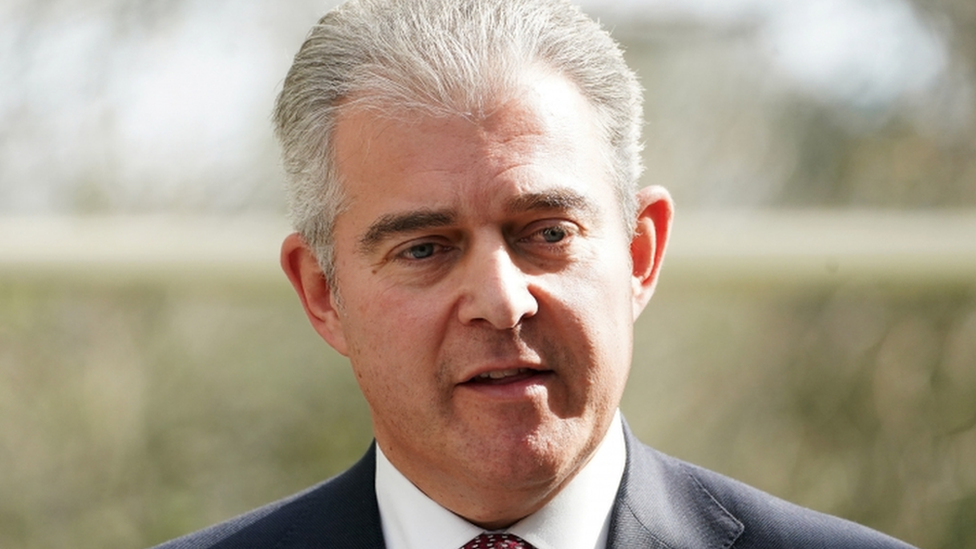
Northern Ireland Secretary Brandon Lewis has defended the plans
Alliance MP Stephen Farry backed the Northern Ireland amendment and said the new rules were unworkable.
The amendment was proposed in the House of Lords by Baroness Ritchie, the former SDLP leader.
She said the UK government were showing "a total lack of understanding".
South Belfast MP Claire Hanna of the Social Democratic and Labour Party (SDLP) is another critic of the Bill.
She described it as "a terrible piece of legislation overall, with a horrible approach to refugee and asylum issues".
She was also critical of the UK government's approach saying this "captures their cavalier approach to relations with their neighbours and goes against the spirit of the Common Travel Area by putting limits on non-Irish and British people even if they are residents".
The Common Travel Area (CTA) gives UK and Irish citizens certain reciprocal rights in each other's countries and has continued since the UK left the EU.
The Bill will now be considered by peers in the House of Lords and both Irish and British ministers say their conversations about the plans will continue.
Ministers at the BIIGC on Wednesday also considered a range of other items and had discussions on Ukraine, cyber-security, political stability in Northern Ireland, legacy and the Euro 2028 football tournament.
BIIGC is a body set up to promote co-operation between the UK and Ireland and brings together representatives from both sides of the Irish Sea.
It last met in December, when Northern Ireland had a functioning executive.
- Published18 March 2022
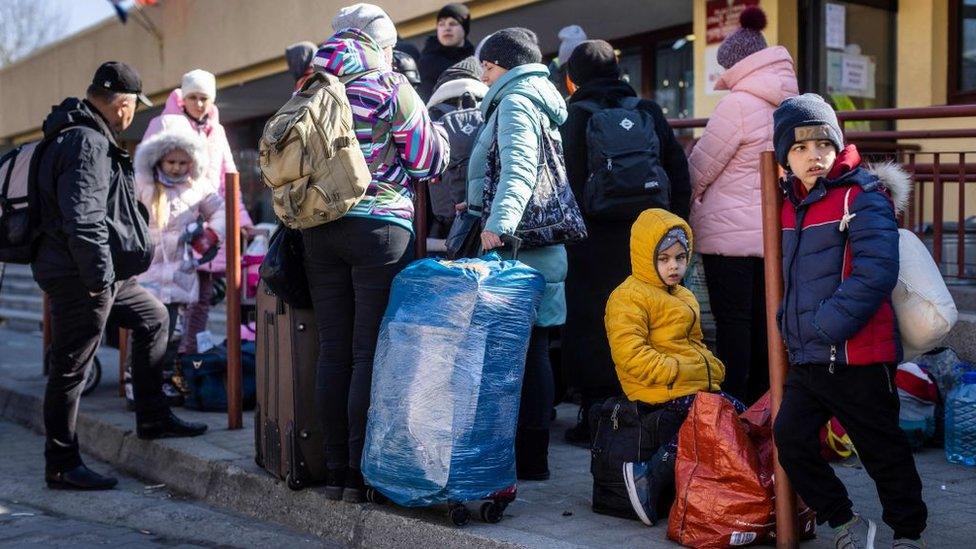
- Published24 June 2021
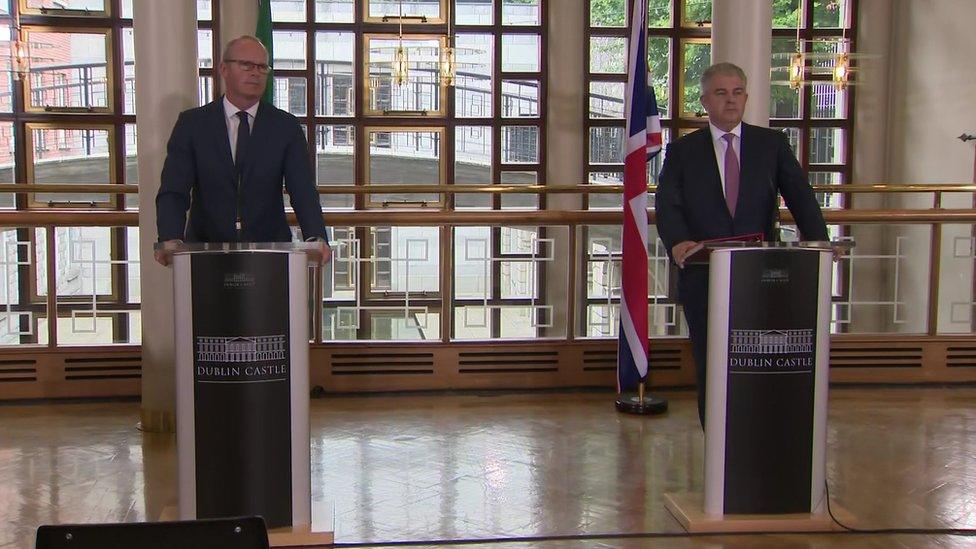
- Published2 February 2024
